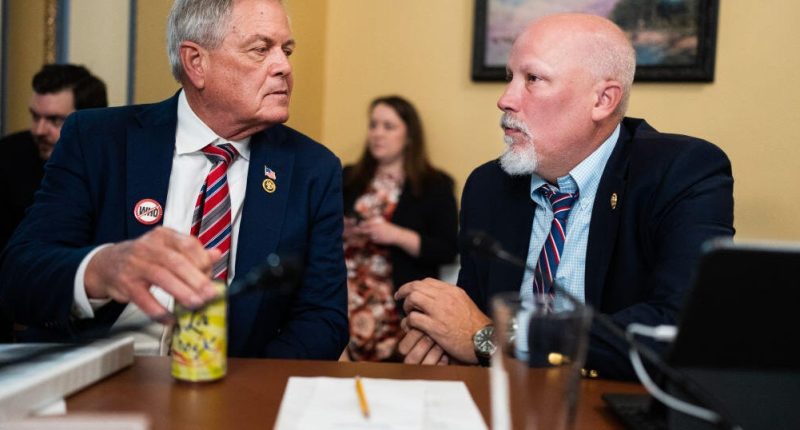Share this @internewscast.com
Washington — House Republicans are still working to settle several key disagreements that could undermine President Trump’s domestic policy bill, with both conservative members and Republicans from blue states standing firm on their positions.
House Speaker Mike Johnson is determined to bring the legislation to a vote before Memorial Day. This bill aims to extend tax cuts initiated during Mr. Trump’s first term and introduce temporary new ones. It also plans to increase spending on military and border security, partly compensating for these expenses by reducing funds for Medicaid, food stamps, and clean energy subsidies.
However, before reaching the floor, the bill must pass through the House Budget Committee starting Friday. Some conservative members believe the spending cuts aren’t sufficient. On Thursday, Rep. Ralph Norman from South Carolina mentioned that he and Rep. Chip Roy from Texas plan to oppose moving the bill forward.
“We’ve got a spending problem. We’ve got a deficit problem, and it doesn’t address that,” Norman said.
Rep. Jodey Arrington of Texas, the Republican chairman of the Budget Committee, said he was confident there are enough votes to advance it when the committee meets Friday to merge the various parts of the reconciliation package that have been produced by other committees into a single bill. If it can get out of the Budget Committee, the plan is for the Rules Committee to meet Monday to tee it up for a floor vote later in the week.
Meanwhile, a group of Republicans from blue states have threatened to withhold their support in a floor vote if the bill does not raise a cap on state and local taxes that can be written off on federal tax returns. The bill increases the cap on the deduction from $10,000 to $30,000, but several New York Republicans have insisted on raising it even further.
Rep. Mike Lawler, a New York Republican, on Thursday called the cap “unacceptable” and said the group has made clear to leadership that “none of us are going to support that as it currently stands.”
Among the demands conservative members have made are moving up the work requirements for Medicaid recipients without disabilities and children. The requirements would not set in until 2029 under the current bill and conservatives want them to kick in as soon as the legislation becomes law.
House Majority Leader Steve Scalise, a Louisiana Republican, said Thursday that they are considering moving up the effective date for the work requirements to get more members on board with the final product, but added that the final details have not been worked out.
Johnson, a Louisiana Republican, spent Thursday meeting with the opposing factions and said they would continue to negotiate through the weekend to resolve the remaining differences. He can afford just three defections, if all members are voting, in a floor vote.
contributed to this report.

















